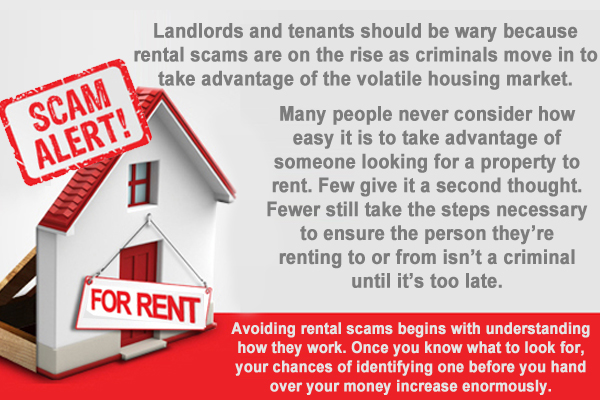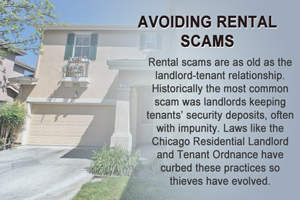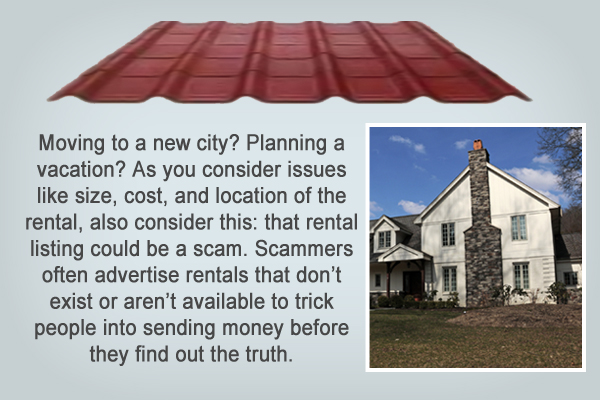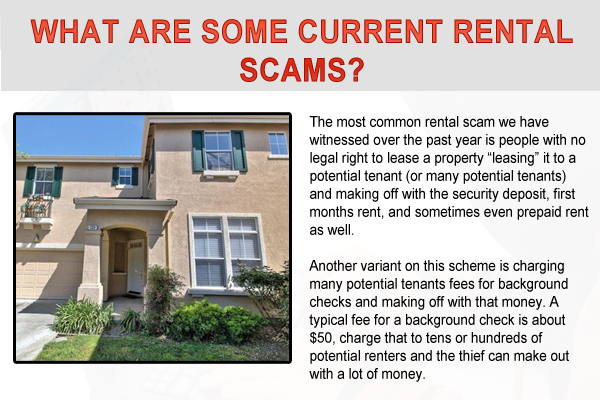Rental Scams
What is rental scam?
Scammers engage in fraudulent practices by setting prices for luxury apartments and homes that are typically lower than the prevailing market rates. They deceitfully assume control of rental properties, asserting that the legitimate owners are residing out of state, and present themselves as agents responsible for managing these housing assets.
One distinguishing feature of this scam is the scammers' bidding strategy, where they quote prices significantly below the property's genuine market value. Their fraudulent
activities often involve misrepresentation of property ownership and false claims of acting on behalf of absent property owners. This elaborate scheme aims to lure unsuspecting
individuals with the allure of a seemingly lucrative and below-market-value real estate transaction.
How scammers work on this rental scam
They manipulate housing and apartment images by affixing their own price tags to attract individuals. Employing deceptive tactics, they falsely present properties tagged for sale as available for rent in their advertisements. This strategy leads to an influx of emails to their personal accounts as people express interest advantageous deals. Capitalizing on the situation, scammers request personal information and exploit the urgency associated with securing a rental property.the scammers proceed to demand payment through services like MoneyGram or Western Union. Importantly, they refrain from disclosing the precise location of the property, creating a fraudulent transaction.
How to identify rental scams
- You are strongly advised to make an advance payment, covering both the deposit and one month's rent, through MoneyGram or Western Union, even before visiting the actual property.
- The justification provided is that the property owner is currently absent from the city, and funds must be transferred to an alternative account specified by the scammer.
- Emails received exhibit spelling mistakes and grammatical errors, often accompanied by to evoke sympathy or urgency.
- The rental property is priced significantly lower than the market rates for similar properties in the same locality, serving as a red flag for potential scams.
- Notably, no legitimate legal documents are provided before requesting the transfer of funds, raising suspicions about the authenticity of the transaction.
- Applicants are instructed to complete an application form, yet these forms lack genuine details about the property owner, further highlighting rental process.
How huntscammer work against this rental scam
To combat the proliferation of fraudulent activities, particularly in the realm of rental scams, we are dedicated to curating a comprehensive list comprising only legitimate rental properties. Our user-friendly platform allows you to verify the authenticity of a property by simply entering the name and locality of your search.
Frequent warnings and alerts are issued to apprise users of the various tactics employed by scammers in deceptive rental schemes. We actively participate in the mission to eradicate scams by disseminating information to diverse audiences, educating them on how to avoid falling victim to such schemes.
As part of our commitment to preventing fraudulent activities, we provide a dedicated space for users to register complaints and report suspicious listings. These reported cases are promptly forwarded to legal action sections and other government agencies focused on preventing fraud.
Our platform employs advanced algorithms to sift through listings, ensuring that only authenticated information about properties is presented to users. This proactive approach aims to create a secure and reliable environment for individuals seeking rental properties, bolstering the collective effort to eliminate scams from the rental market.
How to stay away from this rental scam
- Before searching for rental properties, ensure you have a clear idea and proof of the property's authenticity.
- Never transfer your money online unless you receive proper confirmation and validation of the transaction.
- Before looking for rental properties get the clear idea and proof about the originality
- It is advisable to have a family member or friend accompany you throughout the rental process.
- Strictly avoid depending on third parties who claim to be agents but may not have genuine credentials or affiliations.
Common Tactics in Rental Scams
Rental scams are unfortunately prevalent in the real estate market, exploiting the desires and vulnerabilities of individuals seeking accommodation. Here's a more detailed exploration of common tactics employed in rental scams:
- Bait-and-Switch Listings: Scammers often post attractive property listings with appealing features at exceptionally low prices. When potential renters express interest, they are informed that the advertised property is no longer available but are offered a different, less desirable property at a higher rate.
- Phantom Rentals: In phantom rental scams, fraudsters create fake listings for properties that don't actually exist. They may use stolen photos and descriptions from legitimate listings to make their fraudulent postings appear genuine.
- Urgency and Limited-Time Offers: Scammers create a sense of urgency, pressuring potential tenants to act quickly without thoroughly reviewing the terms. They may claim that the property is in high demand or offer limited-time deals to manipulate individuals into making hasty decisions.
- Remote Landlord or Agent: Scammers often claim that the property owner or authorized agent is located far away or overseas, making it difficult for potential tenants to meet them in person or view the property. They then request payments or deposits to be made through unconventional and untraceable methods.
- Forged Documents: Some scammers go to great lengths to create forged lease agreements, rental applications, or even fake keys to convince victims of the legitimacy of the transaction. These documents may appear authentic at first glance but lack genuine details upon closer inspection.
- Overseas Rental Scams: Rental scams involving overseas properties are particularly common. Scammers exploit the geographical distance to justify their inability to show the property in person and ask for advanced payments before the potential tenant can physically inspect the premises.
- False Identity and Credentials: Scammers may assume false identities, posing as property owners, landlords, or authorized agents. They may use fake credentials and contact information to establish trust with potential victims.
- Online Payment Requests: Fraudulent landlords or agents often request payment through unconventional channels, such as wire transfers, MoneyGram, or Western Union, making it difficult for victims to trace or recover their funds in the event of a scam.
To protect oneself from rental scams, it is crucial to conduct thorough research, verify the legitimacy of listings, and refrain from making any payments until the authenticity of the transaction is verified through reliable channels. Additionally, dealing directly with property owners or reputable, verified real estate agents can help mitigate the risk of falling victim to rental scams.






